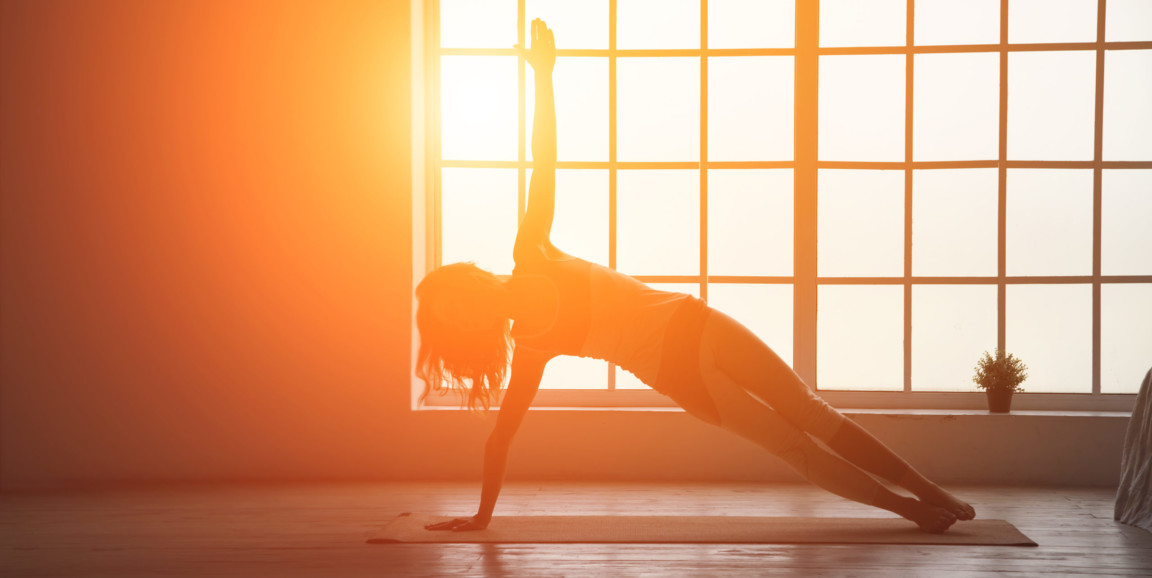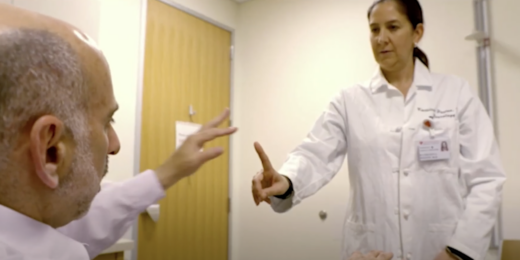COVID-19 is harming public health, clearly affecting those who have tested positive. But its reach is much more widespread.
I've seen an uptick in stress, a drop of physical activity, and dip in social interactions. The fallout is likely to exceed the direct harms of COVID-19, but worsening health and well-being also makes us more susceptible to the novel coronavirus and its complications.
It's a good time to take both a break from the news and a few deep, meditative breaths. One place to start is giving yourself time and compassion around learning new social-distancing habits.
Behavior change can be frustratingly difficult and only happens slowly. In my clinic, I've found it hard to overcome my reflexive habit of greeting patients with a handshake. It has taken several weeks to switch to a reverential, hand-at-my-heart bow that I hope conveys at least as much respect and good will.
Among the most important behaviors to gradually learn or relearn: diligent and frequent hand washing, refraining from handshakes, avoiding touching your face, coughing or sneezing into a tissue or handkerchief, avoiding individuals showing signs of illness, and steering clear of crowded locations.
Many of these "new" practices are not at all new; they're just good advice for preventing typical viral infections that we should have taken more seriously in the past. For now, for most of us (and I recognize this could change), the risk of influenza exceeds the risk of COVID-19. Over the last decade, the CDC estimates that influenza kills between 12,000 and 61,000 Americans each flu season, compared to less than 50 U.S. COVID-19 deaths and less than 5,000 worldwide.
It is critical to be physically active, possibly in new ways.
Regular exercise is an effective stress management tool. Maintaining or improving your fitness level can also reduce the risk of viral infection and even the chances of severe COVID-19 complications. Low intensity physical activities, such as walking, are helpful, especially for older people and those with existing chronic conditions. If you can, try to achieve the recommended goal of 30 minutes of moderate physical activity most days of the week.
Given that Americans made 6 billion visits to gyms or studios in 2018, keeping active may require new strategies. This includes digital technologies that allow you to be active in your home rather than at the gym, yoga studio, or dancing venue. Many great online resources are available.
In this distressing time, maintaining or adopting stress reduction strategies is part of keeping healthy. Chronic stress can make us more susceptible to viral infections. Figure out what works for you. I find meditation, yoga, walking, strenuous exercise, relaxing with my partner, being in nature, and creative activities all to be calming and reinvigorating.
If you or a loved one needs more help, reach out to your health care provider or therapist for depression, anxiety, and other mental health concerns.
Social isolation is bad for your immune system and health, so we need to find new ways to maintain our connections to others, whether at work or in our communities. Connecting over Facebook, Instagram or Snapchat often isn't enough.
For me, video conferencing is more effective, but only when everyone uses the camera. To get the most of video work meetings, it's important to devote time to catching up on personal lives, so that the interactions aren't just about business. Try out innovative ideas: if you're hesitant to meet someone for coffee, plan a digital date instead.
Beyond remaining physically active, mentally calm (or aiming for it), and socially connected, pay attention to other health behaviors. Make sure you obtain seven or more hours of high quality sleep each night. Eat a heart-healthy, plant-predominant diet that emphasizes fibrous vegetables, fruit, and whole grains. Say no to that extra cookie.
COVID-19 has spawned unprecedented uncertainty, but it's also created new opportunities.
Be inventive and take advantage of new possibilities generated by the pandemic. Instead of eating out, for example, get back to cooking healthier meals for yourself and family. While working from home, take the chance to interact more with your partner, children and/or pets. If you're no longer commuting, use the extra time to schedule daytime exercise while you're at home.
Don't let protecting yourself against coronavirus cause your health to take a plunge. While it is important to keept the pandemic in perspective while taking it seriously, the usual strategies for keeping yourself healthy are themselves important precautions against COVID-19.
Randall Stafford, MD, PhD, is a professor of medicine at Stanford and practices primary care internal medicine. His research focuses on chronic disease prevention and treatment, but he also has broad experience in public health and infectious disease epidemiology.
Image by Shutterstock






